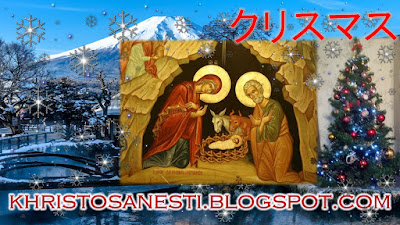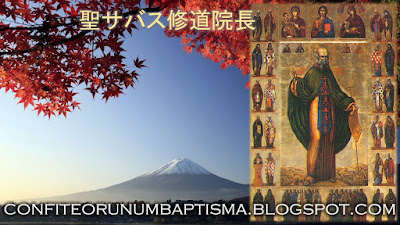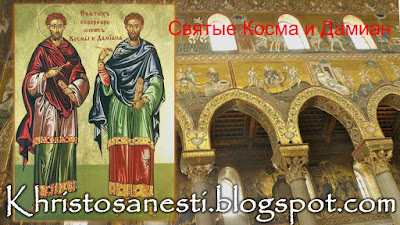ENGLISH:
November 1st, St. Cosmas and St. Damian.
The Church celebrates the memory of Saints Apollonia and Mauritius and the martyr Constantine the Younger in Ormideia in Cyprus, who is among the three hundred saints who came and lived in Cyprus during the Second Crusade. The martyr Constantine was preaching the Holy Gospel. He was martyred for his Christian activity and with the grace of the Holy Spirit, he became wonder-worker. Thanks to his great faith in the glory of God and the consolation he offered to the faithful, a church was built dedicated to his memory in the community of Ormidia, where his holy relic is kept.
Today our Church celebrates the memory of Holy Wonderworking Unmercenary Physicians Cosmas and Damian.
Holy Unmercenaries Cosmas and Damian were physicians and provided free services to everyone. Accepting no payment for their services led to them being named anargyroi (from the Greek Ανάργυροι, ‘the silverless’ or ‘unmercenaries’). They combined the medical knowledge with the true faith and philosophy of the Church. In return, they asked those they had cured to accept and confess the true faith in the crucified Jesus Christ.
Some, however, out of jealousy, defamed the two brothers to the emperor, who tried to persuade them to renounce the Savior Christ. Not only did they not renounce their faith, but by the grace of the Holy Spirit, they succeeded in persuading and converting the emperor himself to Christianity, since he accepted their services, with the result that both he and those present confessed their faith in Jesus Christ.
Later, after having earned glory and honor, Saints Cosmas and Damian were slandered by their teacher. Under the pretext of collecting herbs to make medicines, the Holy Unmercenaries were treacherously murdered by stoning by their teacher.
The outspokenness of the Holy Unmercenaries, as well as that of the modern Saint Luke of Simferopol, the physician, is great and admirable.
Let all the faithful turn to the grace of our saints, especially our modern doctors and health officials, in general, to give them courage in their precious work, offering their knowledge with respect, love, patience and selflessness to every suffering human being.
At the same time, let us all thank them and understand them because health officials are human beings, not superhumans.
-------------------------------------------------------
ESPAÑOL:
1 de Noviembre, San Cosme y San Damián.
La Iglesia celebra la memoria de los santos Apolonia y Mauricio y del mártir Constantino el Joven en Ormideia en Chipre, que se encuentra entre los trescientos santos que vinieron y vivieron en Chipre durante la Segunda Cruzada. El mártir Constantino predicaba el Santo Evangelio. Fue martirizado por su actividad cristiana y, con la gracia del Espíritu Santo, se convirtió en un hacedor de maravillas. Gracias a su gran fe en la gloria de Dios y al consuelo que ofrecía a los fieles, se construyó una iglesia dedicada a su memoria en la comunidad de Ormidia, donde se guarda su santa reliquia.
Hoy nuestra Iglesia celebra la memoria de los santos médicos milagrosos no mercenarios Cosme y Damián.
Los Santos no-mercenarios Cosme y Damián eran médicos y brindaban servicios gratuitos a todos. No aceptar ningún pago por sus servicios los llevó a ser nombrados anargyroi (del griego Ανάργυροι, "los sin plata" o "no mercenarios"). Combinaron el conocimiento médico con la verdadera fe y filosofía de la Iglesia. A cambio, pidieron a los que habían curado que aceptaran y confesaran la verdadera fe en Jesucristo crucificado.
Algunos, sin embargo, por celos, difamaron a los dos hermanos ante el emperador, quien trató de persuadirlos de que renunciaran al Cristo Salvador. No solo no renunciaron a su fe, sino que por la gracia del Espíritu Santo lograron persuadir y convertir al mismo emperador al cristianismo, ya que aceptó sus servicios, con el resultado de que tanto él como los presentes confesaron su fe en Jesucristo.
Más tarde, después de haber ganado la gloria y el honor, los santos Cosme y Damián fueron calumniados por su maestro. Con el pretexto de recolectar hierbas para hacer medicinas, los Santos no-mercenarios fueron asesinados traidoramente por lapidación por su maestro.
La franqueza de los santos no mercenarios, así como la del moderno San Lucas de Simferopol, el médico, es grande y admirable.
Que todos los fieles se vuelvan a la gracia de nuestros santos, especialmente a nuestros médicos modernos y funcionarios de salud, en general, para darles valor en su preciosa labor, ofreciendo su conocimiento con respeto, amor, paciencia y abnegación a todo ser humano que sufre.
Al mismo tiempo, agradezcamos todos y comprendamos porque los funcionarios de salud son seres humanos, no superhumanos.
+++











